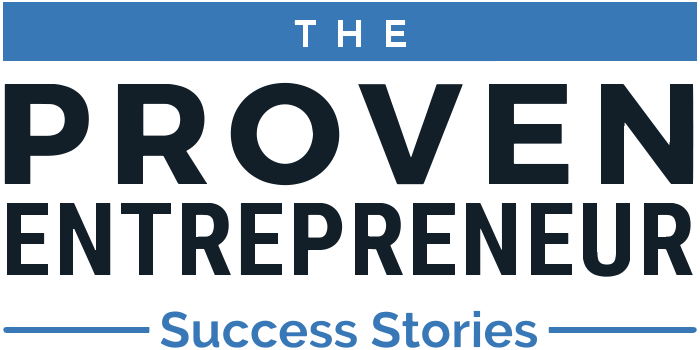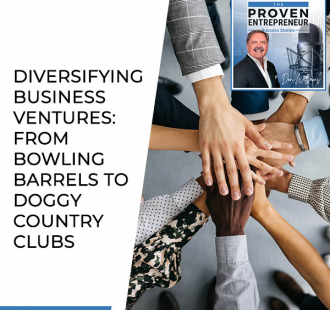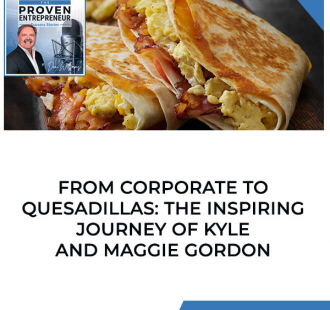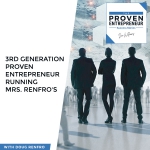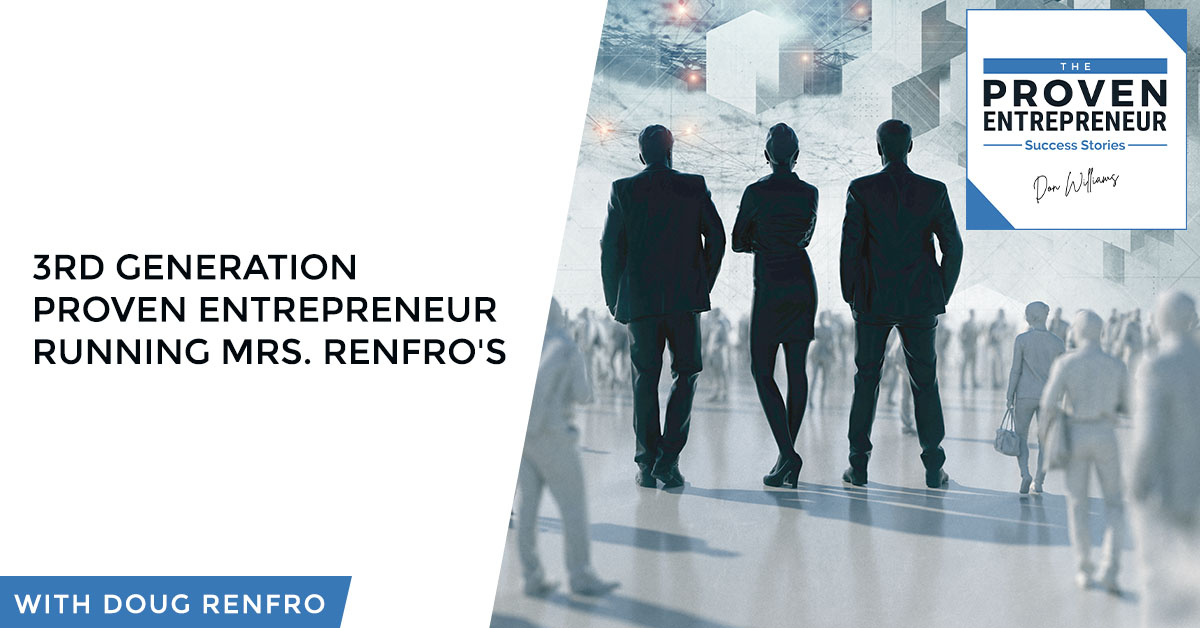
Passing down a business to your children is one daunting task full of risks and challenges. Doug Renfro gives a peek at what it’s like to be in such a situation by sharing his work as a third-generation entrepreneur of Mrs. Renfro’s. He sits down with Don Williams to talk about the biggest roadblocks he faced upon taking the reins of their family business and the lessons of persistence he learned along the way. Doug also breaks down the unconventional marketing methods to keep Mrs. Renfro’s ahead of the curve, from bringing food to movie sets and taking advantage of the internet’s massive reach.
For information on how to work with Don visit Work With Don Williams
You can also reach out to Don Williams at https://donwilliamsglobal.com
Please join Don and his businesses in support of St. Jude’s Children Research Hospital in its Mission to cure Childhood Cancers. You can donate to St. Jude at stjude.org/donate
—
Listen to the podcast here
Doug Renfro – 3rd Generation Proven Entrepreneur Running Mrs. Renfro’s
I’m here with another episode of the show. My guest is local Fort Worth luminary, long-term business, Doug Renfro, with Mrs. Renfro’s.
Thanks for having me. I assume luminary is the light coming off my forehead.
It means that wherever you go, there’s a bright light around you. Tell us about Mrs. Renfro’s. You are in the salsa business and have been in the salsa business for longer than a week or two.
It has been for a couple of years. We are an 81-year-old family business. It’s very evolutionary. When my dad was a kid, they made syrup. When I was a kid, we did Southern relishes. We got into taco sauce in the ‘70s, and now, we are the largest independent brand of salsa in the United States.
The business had multiple pivots along the way. Mrs. Renfro was your grandmother. What was the first product that she put on the market?
If you go North on Main toward Joe T Garcia’s in Fort Worth, you will see a building on the side called the vintage building. It has been nicely restored. I have a photo outside my office of my granddad in the ‘30s and his vintage company car. He was distributing grocery items like flavored vinegars, garlic strips, and other different things. In 1940, after he made it through the depression, he thought, “I’m going to go out on my own and do this.” They started in the garage in 1940. For twelve years, they did that and distributed grocery items. In ‘52, they started making syrup. There were no maple trees syrup.
How many salsa brands are there that most people would recognize?
There are over 800 tracked in the nation, which seems ridiculous. As far as what’s popular and what people know about nationwide, there’s a good 100 or 200. We are fortunate that half of what we do is make things for other people. I can take you to a grocery store and normally show you 3 to 7 other brands that we make. It’s not always salsa. We also do bean dip, cheese sauce, barbecue sauce, and relish. We have done some ethnic condiments as well. As long as it will fit our technical parameters, we will give it a shot.
You are the manufacturer in their label.
Many times, it’s their recipe, and we make it for them. Many times, we created the recipe for them. We do a lot of grocery store chain items where they come to us and ask, “What should we do to have a private-labeled salsa or cheese sauce?” I will suggest things based on what I see in the market, and then they will pick a few. We will either create a recipe or use a library we created earlier in a non-competitive space. I can take you around the world or some places and show you this jar that looks nothing like us and has nothing about Texas or Renfro but it’s our recipe. In many cases, we have been making those for many years.
Did your grandmother start the business?
My grandparents did it together.
Your father then took over the business.
My dad and my uncle were 50/50 partners. My granddad was smart. He didn’t have a lot of formal education but when he incorporated, he kept 52% and gave them each 24% so that if things went south, they could still fire him. When he passed away in ‘75, my grandmother gradually gifted more to my dad and my uncle.
My dad is what I call allergic to sales. He liked the production and detested anything administrative or sales and marketing-oriented. My uncle did marketing, accounting, and everything else. My two cousins came back earlier than I did, although I was there before they were. Every summer since sixth grade, I did the nastiest jobs. We had to make $5 a day initially, and then they had to pay me minimum wage when I turned sixteen.

In college, I mixed all the spices and then went to get my Bachelor’s degree. I lived at home and had a really interesting smelling Subaru with cumin and garlic notes. I’ve got the heck out of there and went to work for Rossborough’s company for seven years after college when he sold it to General Motors. I wore a coat and tie, and the car did not smell of garlic. I probably told you that corporate jobs will suck the soul out of your body, so I have been back for a couple of years. My two cousins and myself run the company. We still pay my dad to come to launch with us occasionally. We share lots of info with him to get his input on things.
It’s a true American family business.
Very much so. We always told the fourth generation, “You’ve got to go to college, graduate, and work somewhere real for a couple of years and come back if you want to go up the management route.” Several of them are smart and successful, and they already make more than double what we can pay them as a management trainee. For the others like my three children, I always said, “Chase your path. Don’t chase the dollar. You will be very happy,” and they are very happy. They live in LA, New York, and North Carolina and have no interest in the business.
I have a good friend whose grandfather started a construction company and built it to about $500 million. It’s a pretty nice construction company. The next generation didn’t do so well. The grandboys run it now but from the very beginning, there was always a rule. It was, “You must go out and work ten years somewhere else before you can come back to the business.”
It’s a great rule. I was gone for 7 or 8 years.
Who were you with?
I was with EDS when I was hired, then that became acquired by General Motors.
You grew up in an entrepreneurial family.
My dad was 84. He has never had another job. He has always worked for the family business. My uncle, who has passed away, was in the Army for two years after college and never had another job other than the family business.
Both of those gentlemen are my hero. They never had a real job other than in the Army. We will overlook that. What was your degree when you went to school?
My undergrad was Finance. When I got to EDS, they said, “There’s this new thing called a CMA,” which was a Certified Management Accountant. It was a CPA for the industry. They said, “Go get one of those,” which were 4 or 5 written exams at the time, so that took a couple of years. I did that and they said, “That’s cool. Now, go get an MBA.”
I went to SMU at night and on the weekends for three years and got my MBA. I lived in Plano, Dallas, at the time. I started at their headquarters at Forest Lane, and then it was their headquarters in Plano and around that area. I did that, and then we started having kids. My wife was teaching at the time. I would call my wife and say, “I’m going to be in Vancouver the rest of the week.” That situation was not conducive to family life. I was also working for 60 or 70-hour weeks because that was the environment.
They provided great training and had smart people. I had a great time and made decent money. Unfortunately, I was good at things that bore me to tears, which were policy and procedure. I like doing things and being involved. I like being in the thick of things. I love product development and marketing. It’s so fun and satisfying to do it on a daily basis and have your grandmother look at you on the side of the jar.
Tell me this. Out of all of that history, was there a hard lesson you can share with us that was painful at the time but in retrospect, it turns out that was very positive?
I’m sure there were no more than several hundreds of those. It’s always a journey. You are always learning. One of the things I always tell my kids is that it’s amazing how many times in life you want something badly, and had you gotten it, looking back, it would have been a disaster. Not getting a lot of things was good. The delayed gratification was very much there in the family business.
Chase your path. Don't chase the dollar. Click To TweetWe were a small company but we were tiny when I came back. We couldn’t afford anything, so we didn’t have an accounting system for the first twelve years I came back. I had been in charge of accounting systems for a billion-dollar company. That was weird but I didn’t know anything about trade show marketing, getting into grocery stores, and developing new products. I had plenty to keep me on without having that.
We have had excitement. We have had our largest customer at the time we go Chapter 11. That was neat. The fun thing is we were very persistent. Persistence and tenacity are more important than intelligence. You can’t be a moron but it’s more important to be tenacious. We’ve got with a local bankruptcy attorney who was sharp and worked an eight-year deal with the customer.
They owed us a million dollars at the time. This is in the public record. We’ve got all of it back. Over the next eight years, they stayed in business. We have done 2 or 3-year renewals. They are still a major customer and a major brand. Everybody won, which you don’t hear a lot when your largest customer goes Chapter 11. That’s normally not happy news.
What about a golden nugget? Is there something from your history that you could share with our audience that would be a nugget of wisdom from the mind of Doug Renfro?
To me, it’s to never pass up a networking opportunity. When I came back, my uncle had been at the company for half a century but he didn’t have any experience with food distributors, which was the newer channel we were going into. He only had an eighteen-month headstart on me with some of these. He and I would go to trade shows, and then we would go to the happy hour at the end of the day and stand there looking like the rubes from Texas that we were.
I have been very nice and gracious in asking questions like, “What does this mean? What’s an MSRP? What’s an NOAA? What’s a bill back? Does Walmart want this? How does that work?” People will tell you all kinds of things if you are nice, pleasant, and not a direct competitor. It’s amazing how many times I’ve gone into a situation like that in a trade show.
Initially, I was not comfortable. I don’t know anybody. I’m like, “I would rather go back to my room and watch Netflix,” which they didn’t have at the time but I found that if I stand in there for about ten minutes and strike one conversation, by the end of it, I have met several key people and some of whom I will know for the next 30 years. I love connecting. I love being able to help you. You can call me, and I won’t be able to solve your problem but I can get you closer to it. I know somebody who might be able to solve it. If I can help connect you with them, you will have a warm fuzzy when you think of me for the rest of your life.
Ask, if you are an entrepreneur and you want to know something, start asking. Other entrepreneurs want to help. It’s typical because we had help somewhere along the way, and want to give back.
I do a ton of mentoring. People send people to me, and they are like, “Would you answer some questions for them? Would you teach this class? Would you help here?” Shamelessly, I will take salsa for everybody but I spoke to a TCU Family Business class last week. I’m speaking to an Ethics class tomorrow and being flown to Chicago in a couple of weeks to speak at a trade show about selling as David in Goliath’s world. If there is anything I can do to share the gospel of salsa, I will do that.
Tell us a little bit about selling as David in the world of Goliath. You told me you are number eight now but when you first started, you were not number eight.
When I came back to the business, I would take our product to parties. People would say, “That’s delicious. Where can I buy it?” I would say, “You can’t.” We were in Milwaukee, Napa, and a farmer’s market in one suburb. It was a very spastic and random distribution. It was rough early on. My uncle and I, and then my uncle, myself, my sales director, and my cousin would go to a show and be told no repeatedly.
Twice a year, we would go to a show where there were food distributors from around the country, and they would ring a bell. Every nine minutes, they rang the bell, and you would change tables. We would talk to 27 distributors in little nine-minute segments trying to convince them to carry our line. Many times, they would laugh derisively. They are like, “Not only are we not going to carry it, we never will.” They didn’t like our label at the time. We didn’t have much presence but back to that tenacity and persistence, we kept smiling our way and kept being nice to them to death.
Finally, my salesman and I were up in Boston. This one market, and it’s one of the better retailers up there, said, “You nice boys from Texas have interesting products.” We were early innovators. We created black bean salsa and habanero sauce at a value price when nobody else had it in the nation. They said, “Your products are good. Your label is ugly but you are nice. Let’s give it a shot.” What happens when one retailer gives you a shot in an area, their competitors look to see what they are doing, and if it does well, they will copy it. Over about a 3 or 5-year period, you slowly sell every retailer up there, and then you go to another area and repeat.
The trick is getting in that first store.
The first one was brutal.

The first time I met you, you were speaking at an event. You talked about going to a trade show in Canada, and I remember you were sharing about a sombrero.
No, I dressed up as a Canadian Mountie.
Talk to us about unconventional marketing methods you have deployed at Mrs. Renfro’s.
The two statements that I always tell people to sound like they are contradictory but they are not. “I always that to build a brand, you’ve got to be a massive narcissist and not have an ego.” What I mean is you’ve got to do whatever it takes. You’ve got to be willing to be kicked in the head repeatedly, told that you are stupid and ugly, and smile and keep going.
I flew from Fort Worth, Texas, to Canada with a Canadian Mountie costume and wore that thing all day during multiple days of the trade show looking like a moron but everybody that came in would say, “You got to check out the idiot from Texas in the Mountie Costume.” We got our biggest sale of the show, and I got Vendor of the Year.
It’s not about the little ball guy with glasses. Nobody cares about that. It’s about forcing the salsa and the brand in their face. As long as I get a little trophy and the people are thinking about the salsa, I’m happy. I always comment that we’re not big enough to do gorilla marketing, so we do orangutan marketing. We send the product to TV and movie sets, knowing 99% of the time that we are just feeding the crew, which is fine. I’m very fortunate that everybody is a potential consumer of what we do.
My buddy that sells Cadillacs never gives out samples. We give them out all the time because somebody is going to use them. Are they going to sell it on eBay? I don’t care as long as somebody eats it and is happy. You will occasionally get lucky. Some little independent film crew in Austin asked for a product. We didn’t know who they were. Nobody else did either but they made a little film that turned into a $100 million-dollar blockbuster called Spy Kids.
There’s a scene where they open a shelf, and it’s full of these jars of food, none of which has a real label except Mrs. Renfro’s Green Salsa. Somebody had lovingly carefully positioned it to the camera. It was on the big screen. People called me, and they were like, “They’ve got to sell your product in a movie,” and they did. We asked how much it would cost to be in the sequel. It was a $50,000 placement fee because they had become such a runaway star. We are not in the sequel, by the way. Ten years later, I did it with Big Bang Theory.
Somebody called me to have our product on Pretty Little Liars. I have never heard of that. My daughter said it was a real show but when I saw the address at Warner Brothers and said, “I watched Big Bang Theory.” He said, “The set decorator is a friend of mine. Send extra, and I will give it to him.” Several months later, I never heard anything but eight months later, I was sitting watching TV with my wife and daughter, and there was our Tequila Salsa. It’s a product conceived on my favorite show. It was there for 3 episodes, and it moved to the island for 2 more. It was there for five shows in a row. That show’s in syndication. My grandkids will be showing their friends about that. I said you could have killed me that day, and I would have been fine.
There are other mountains to climb.
Subsequently, I did find other things to live for.
That was almost casting bread upon the waters sending salsa complimentary to movie and TV sets.
You will be amazed. 99% of the times I have done that, I don’t even know what happened to it. Most films never make it out of the can. There are all kinds of failures out there. Stephen King did a movie set in a grocery store and I thought, “That’s a natural,” and then, later on, I thought, “What if they used it as a murder weapon?” It could go south.”
Are there any other out-of-the-box marketing methods you have tried?
Our current ad agency taught us the power of Instagram and Facebook. Our former ad agency taught us that they existed and were there in the evolutionary stages. Now, we have little fancy videos on Instagram but what’s more interesting to me is the organic stuff. If you go to YouTube and put in Renfro Habanero Salsa, there’s a full-on music video from three people in Canada we have never met. It’s got a bouncing cat above the lyrics. They are clearly in a grocery store illegally filming. We also only know it’s in Canada because the label’s in French and English.
Never pass up a networking opportunity. Click To TweetIt’s a song about our Habanero Salsa. At the end of it, the guy rubs it all over his face. By watching it, I’m pretty sure it’s real because I know what it looks like. You could also go and put Ghost Pepper Renfro on YouTube, and there are all these guys who have paid or bet their friends $500 that you can’t drink the whole bottle of Renfro Ghost Pepper without having milk. I don’t always make it. It’s not always pretty but it’s free advertising. We had nothing to do with it in these cases, and that’s something that couldn’t have happened several years ago. The technology wasn’t there or it would have been horrendously expensive.
For the first time in history, you can be your own media channel. If you are in business, you probably ought to be. I don’t care if you are a law firm or a sauce manufacturer. You should be competing for eyeballs and eardrums every day because they are out there to be had. When people will do it for you, that’s the best. You mentioned the Carolina Reaper, that one is really hot.
A friend of mine who created that and, at the time, held the world record with Guinness for that being the hottest pepper was on Netflix. It was a series of crazy contests. They had a whole episode on his Carolina rebreeding contest he does in the Carolinas. Those people are insane. They gave them a five-gallon bucket beside them because it’s going to go south for most of the tasters.
I don’t eat that. It’s our number one item on Amazon by far because people who want something that’s specific really want it. They don’t care what it costs. Also, it’s difficult to find in the store. Out of 30 Renfro items, it’s probably number 21 in the grocery stores for us nationwide but it’s number one on Amazon and by quite a bit.
That’s a good place to be number one in. I have tasted it. It is very hot.
We don’t put that much in there mainly because we can’t afford to. It’s a very expensive pepper. Also, you would only sell one jar. I have always told people we are not about the macho sauce. We don’t want you to dip a toothpick in it, see Jesus, and never eat it again. We need you to eat the whole jar and eat another whole jar next time.
Any thought to share for a young aspiring entrepreneur?
That comment about tenacity and persistence over education. My granddad graduated eighth grade and was positive. I always point out to people that I’m not an entrepreneur. My dad was not an entrepreneur. My grandfather was someone that was brave enough to say, “I made it through the depression. Let’s quit our job and start something in the garage.” That’s a different mentality, and I have been fortunate to be surrounded by thousands of them in my life and my journey. It takes a lot of gumption to do that but the number one thing I have seen with all the successful ones is this persistence because they will get kicked in the head repeatedly and be told their idea is stupid.
The first 2 products that I got to create, 1 was habanero. I was told at the time it will be cute because it’s so hot but we will never sell much. It has been our number one item for a couple of years now. If you believe in what you are trying to achieve, you’ve got to keep your head down. Don’t be obnoxious but be persistent and keep going. When you are wrong, you will know. The world will update you.
There’s real truth in that. Pivot, maybe but don’t quit.
Be very nimble. I thought pomegranate Chipotle was a great idea. We would sell 30,000 jars per year but it wasn’t enough to be able to keep it going. Within the last few years, we have discontinued 9 or 10 items. I’m trying to be a grownup, and skewing rationalization is harder when you created the recipes. They are your babies but it’s something we have to do because the big retailers are not going to give us 30 facings. They are not going to give us 30 jars wide of Renfro, so the key is to sell more of what you have, and if they like something, get behind it.
One of my companies used to work with a French-Canadian office supply manufacturer. They would come out with about 100 skews a year. They are selling with people like Depot, Staples, and Walmart but it was interesting in dealing with them because they only believed in maybe 5 or 6. They put money and effort into the 5 or 6 and trying to launch those. The other 100 was more of a soft launch but they knew how to cut their losses. They said, “This stands a chance, and that doesn’t.” There’s a little bit of predicting the future, so you never know.
It’s amazing how the 80/20 Rule works in many aspects of life. We have 30 items. The top five are half the sales. I don’t care if they make mustard, salad dressing or pickles. I guarantee you that 80/20 works.
In some industries, it’s even 90/10. It’s scary but true. Thank you so much for joining us. It has been a pleasure. You can find Mrs. Renfro’s almost everywhere. I encourage you to go get some.
If you can’t find it, please make a big scene. Scream and yell about it. Thanks again.
Thank you.
Important Links
- Mrs. Renfro’s
- Instagram – Mrs. Renfro’s Salsa
About Doug Renfro
 As president of Renfro Foods, Doug works closely with his cousins Becky and James to run the company. In particular, Doug focuses on research and development, private label and contract packing, quality assurance, sales and marketing, legal, information technology and a dozen other areas (hey, it’s a small family business).
As president of Renfro Foods, Doug works closely with his cousins Becky and James to run the company. In particular, Doug focuses on research and development, private label and contract packing, quality assurance, sales and marketing, legal, information technology and a dozen other areas (hey, it’s a small family business).
The son of second-generation owner John “Jack” Renfro, Doug learned the family business from the bottom up, starting on the factory floor as a teenager and weighing spices through college. After graduating magna cum laude with a bachelor’s degree from the University of North Texas, Doug proved his salt outside the company, working seven years for Electronic Data Systems (later purchased by General Motors), where he was promoted to divisional finance manager. At the same time, he earned his master’s degree from Southern Methodist University and qualified for his certified management accountant designation. Doug returned to Renfro Foods in 1992.
Doug also makes time to serve his community, currently serving on the executive committee of the Fort Worth Chamber of Commerce, as well as supporting the Chile Pepper Institute’s Advisory Council and the Advisory Board for the TCU Neeley School of Business Institute for Entrepreneurship and Innovation. He previously served as chair for the seven-state Western Gold Region of the Young Presidents Organization (YPO), on the board for the Botanical Research Institute of Texas for 12 years, as chairman of the board for Casa Mañana as well as president of the Tarrant Area Food Bank, the Texas Food Processors Association (TFPA) and the North Texas Food Sales Association. He was named to the TFPA Hall of Fame in 2016 and the Specialty Food Association Hall of Fame in 2018.
For information on how to work with Don visit Work With Don Williams
You can also reach out to Don Williams at https://donwilliamsglobal.com
Please join Don and his businesses in support of St. Jude’s Children Research Hospital in its Mission to cure Childhood Cancers. You can donate to St. Jude at stjude.org/donate
